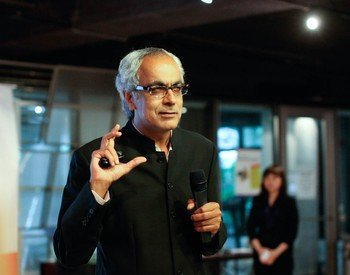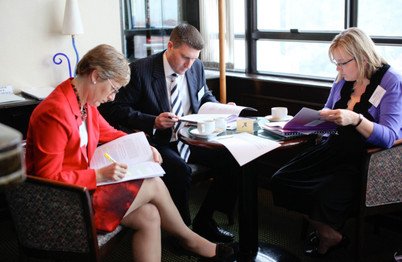An Asian Angle on Business
Harvard University's business school is famous for its case studies which are the gold standard of their kind. But what about Asian schools? Is it really relevant for them to be reading up on Florida car dealerships when there are so many dynamic and interesting businesses on their doorstep?
Harvard University's business school is famous for its case studies which are the gold standard of their kind. But what about Asian schools? Is it really relevant for them to be reading up on Florida car dealerships when there are so many dynamic and interesting businesses on their doorstep?
With that in mind, the Asia Case Research Centre was established to provide a steady stream of high quality Asian business case studies that have become popular not only among other universities, but also businesses. Harvard has also become a distributor.
In 2010 more than 120,000 copies of the Centre's case studies were distributed in 102 countries. About one-fifth were bought by businesses, governments and NGOs who see them as a valuable source of information.
Professor Ali Farhoomand is Director of the Centre. "We are one of the few universities that works on Asian business case studies. What we are doing is transferring knowledge and passing it out to the academic and business communities so both of these communities can benefit."
Nearly 500 cases have been produced to date, many of them featuring interviews with senior executives who agree to share information about their company's operations and development for a higher purpose, according to the Centre's manager, Jeroen van den Berg.
"Executives in Asia-Pacific companies are often people who have been with the company for a long time and may even have founded it. Once they reach a certain age and level of wealth, they want to contribute to society and share their knowledge, and they feel the case studies are a way for them to do this," he says.
The case studies serve multiple roles. Universities use them to make theories more relevant to students, while businesses use them as a source of information, for recruitment purposes (for example, having management candidates prepare presentations based on a case study), and for internal training.
Major firms such as Citibank, Li&Fung, IBM and PCCW are all clients of the Centre, as is Hong Kong's Independent Commission Against Corruption, which asked it to prepare cases on grey areas of corruption.
To further serve Hong Kong, the Centre also offered in 2010 to make its case collection available to all Hong Kong-registered companies at no charge.
"The case studies have helped us to develop closer ties with the regional business community and a deeper understanding of the practical issues they face each day," Professor Farhoomand says.
"This means we can make teaching more relevant to the needs of the business community, and it also means businesses benefit because the next generation of business leaders are trained with this understanding."
The lessons have also been taken further afield through the television production, Business Leaders Series, which featured case studies from the Centre and interviews with senior executives of top Asian firms. The series was aired by BBC World News, ATV World and on many airlines.
The Asia Case Research Centre received the Faculty Knowledge Exchange Award 2011 of the Faculty of Business and Economics for "Development and Distribution of Business Case Studies on Asian Organisations".



